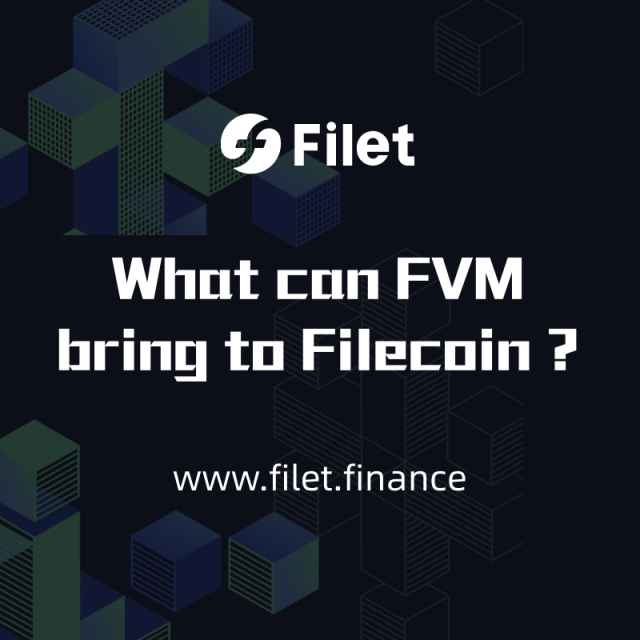Currently, Filecoin is a powerful network for storing and accessing NFTs, public datasets, and assets of web3 & metaverse. If FVM is successfully implemented, smart contract programming can be introduced to Filecoin, which can unlock more value and potential of the network.
Why introduce smart contracts to Filecoin?
- Perform decentralized calculating on the data stored in Filecoin (calculate directly in the space where the data is stored without transferring the data).
- Inter-generational storage and permanent hosting (storing data that will be used by generations of people)
- Local storage of the NFT (storing the NFT data together with the registry data that tracks it)
- Retrieval of time-locked data (unlock the dataset only if the owner publishes the results)
- Collateral loans (lending to storage providers, trading at a specific point in time)
Smart contracts also allow developers to build cross-chain bridges to achieve interoperability, share liquidity, and integrate Dapps deployed on other chains (Ethereum, Near, Solana, Flow, etc.) with the Filecoin network and provide storage for them.
Ethereum-compatible Filecoin virtual machine
The Ethereum Virtual Machine (EVM) is Filecoin’s first external compatible project. The main reason is that the Ethereum community has built a large number of useful, audited, and heavily tested smart contracts such as ERC-20 tokens, NFTs, and DAOs. If we can reuse these contracts on the Filecoin network, all kinds of innovative and composable solutions will be generated.
Another thing that we must mention is that mature Ethereum tools such as Truffle, Remix, Hardhat, and VSCode plugins can be fully utilized in Filecoin. In addition to deploying existing smart contracts, developers can also write new smart contracts in Solidity to achieve quick startup, or use native smart contracts to upgrade if performance optimization is required.
